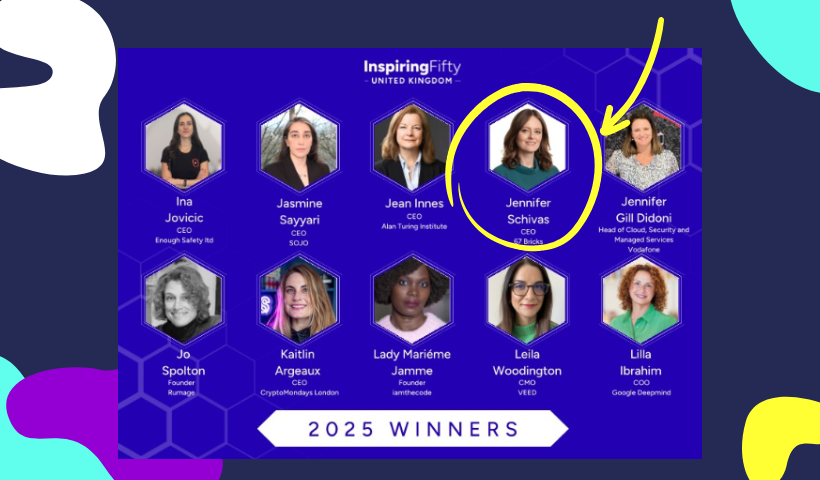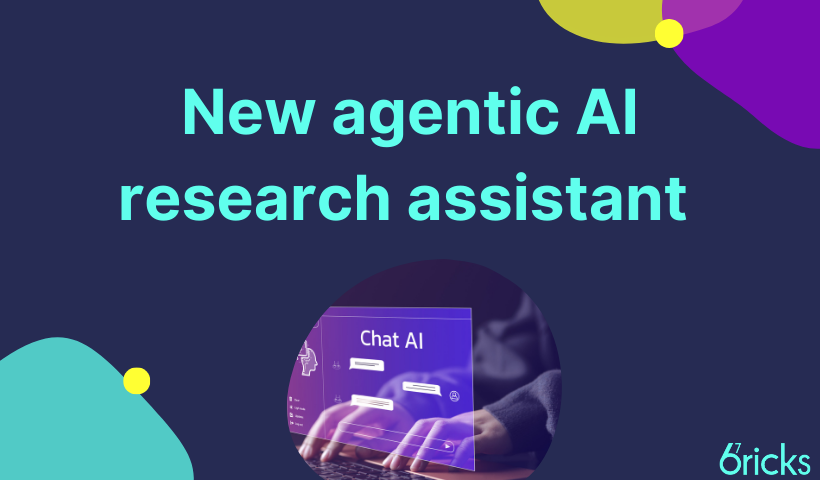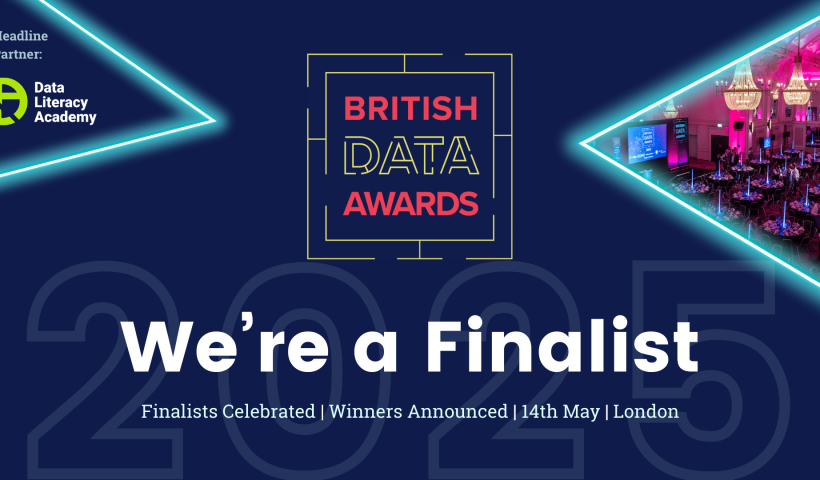
Hi Daniel, thanks for sitting down with us. You were the first official hire at 67 Bricks – tell us how you got here.
Cutting a long story short, I met Inigo and Sam at a web agency called MarketingNet in the late 90s. Subsequently, I trained as a teacher but decided that wasn’t for me, and then set up as a freelance IT consultant. That was quite good fun actually – I got to work in New Zealand, and spent several months working in LA where I met Lemmy and shared an elevator with Chuck D and Mike Tyson. Meanwhile, Inigo and Sam had set up 67 Bricks together. In early 2008 they engaged my freelance IT services to create an embryonic version of the “Draft Review System” for BSI, based on WordPress. In summer 2008, they asked me to work for them again developing a standards-based product for BSI in C#. Midway through that, they took me out for a meal in Oxford and made me an offer I couldn’t refuse. I felt that the merits of a regular paycheck far outweighed the somewhat precarious existence of a freelancer, and so I joined as their first proper employee.
13 years is a long time to stay in one place – what’s kept you with us?
Mostly the fact that I can’t imagine any other job in IT that I would enjoy as much. I have always had faith that Inigo and Sam would do “the right thing” with 67 Bricks, and I think the subsequent trajectory of the company has borne out that faith.
About a decade ago we coined what has become a sort of unofficial company motto – “do sensible things, competently” – an approach which has worked well for us, in that we have good relationships with our clients, and a flow of interesting and challenging projects. That, together with the friendly team that has built up, makes it a great place to work.
How has 67 Bricks changed over the last 15 years?
I miss some of the rituals of the olden days, like singing the 67 Bricks corporate anthem on the first Wednesday of each month. Back in 2009, 80% of the employees had physics-related degrees, a high water-mark which has never been replicated since (obviously a wider range of experience is good, I was just amused by the statistical anomalousness of it!). And Inigo no longer plays Bob Dylan in the office, largely because we’re mostly not in the office thanks to what my daughter calls “the bad germs”.
Obviously, the team has expanded and diversified and we’ve moved offices several times, but on the whole it still feels like the same company I joined in 2008. There have been plenty of happy moments (sites launched, clients happy, colleagues having children), and one particularly sad one – the unexpected death of one of our colleagues from pneumonia a few years ago. Events like that are a salutary reminder that there’s more to life than software development.
An important rubicon was crossed in 2011ish – our “Green Deal” website for BSI was the last project that had contributions from all of the 67 Bricks employees at the time (if memory serves). It’s certainly been ages since I had at least some knowledge of all of our projects.
What are some of your favourite things you’ve worked on?
I have personal reasons for valuing the work we did building a CMS for Pharmaceutical Press to manage their database of drug interactions. I was working on it in the middle of 2019 when my terminally ill father passed away, and I found that my involvement with something drug / medicine-related gave me some comfort at a difficult and sad time. I remember looking through the panoply of medications that he was on and recognising many of the names (diamorphine hydrochloride – you could get a good price for that!)
 My dad had been an Economist reader since the mid-60s, and spoke very highly of their intelligence unit. One of my childhood memories is having to go through a large pile of old Economists at my dad’s behest cutting out the “economic indicators” page. Therefore I was quite proud to be able to tell him that we were doing a piece of work for the EIU developing a modern version of this; a site that allows you to choose and graph the economic indicators of your choice. Retrospectively, we were putting my younger self out of a job…
My dad had been an Economist reader since the mid-60s, and spoke very highly of their intelligence unit. One of my childhood memories is having to go through a large pile of old Economists at my dad’s behest cutting out the “economic indicators” page. Therefore I was quite proud to be able to tell him that we were doing a piece of work for the EIU developing a modern version of this; a site that allows you to choose and graph the economic indicators of your choice. Retrospectively, we were putting my younger self out of a job…
There are actually loads of fun things I’ve worked on, it seems invidious to single out any particular clients for praise in this regard. Everything from my earliest work building standards-related applications for BSI, through to my current work on the ISRCTN site for Springer and some recent XML-related consultancy for OUP has all brought interesting and rewarding challenges and the feeling that we’re helping people (see “why am I still here”, above).
How has the technology you’re working with changed? What’s been the most impactful new development you’ve worked with?
Well, we no longer have to wind the computers up every morning.
It’s another tricky question, but I’m going to choose the rise of virtualisation and the automation of hosting and deployment. Back when I started at MarketingNet, you built your website and deployed it on a real physical machine. We had two servers in the UK which sat in a room in a hosting company somewhere, with an ethernet cable plugged into each. Both of these, incidentally, are now up in my attic, and it’s a bit crazy to think that once upon a time some fairly big names (Travelodge, Grant Thornton, PricewaterhouseCoopers, The Ritz Hotel) had their websites running on these things. In the early days of 67 Bricks, this had mostly stopped being the case, in that any server you had was probably a virtual machine running on a physical box somewhere. But it would at least be a semi-permanent piece of infrastructure on which you could deploy a site or sites by copying files across or whatever. These days, I can make a change to some code, push a notional button, and automated processes will spring into action creating a new virtual machine, deploying the code to it, running tests, switching over the web traffic from the old machine to the new machine, then destroying the old machines. That still seems quite magical.
Another slow but inevitable change since the early days is that it is pretty hard now to be a “generalist” and have a reasonable working knowledge of all of the aspects of the development process. Back in the MarketingNet days, I could be doing server admin (compiling and installing a new version of the Apache webserver), I could be writing server-side code (in PHP, back then), and I could be doing a little bit of JavaScript for the front end (this was an era when having mouseovers on image buttons was a big thing!) and maybe a bit of CSS. These days, JavaScript is still with us, but now there are a gazillion libraries and frameworks written with it so almost no-one writes vanilla JavaScript any more. The same with CSS – frameworks (e.g. Bootstrap) have come along, and doing site design / CSS has become a profession in itself. Behind the scenes, web sites are probably written using some sort of language-specific framework (e.g. PlayFramework for Scala). Building a simple website for your business – the kind of thing MarketingNet used to do – is now completely automatable with off-the-shelf software-as-a-service components (e.g. WordPress) – no developers need to be involved! Fortunately for us, there’s still a market for bespoke application development…
The pandemic has seen us all move from sitting in the office together to working remotely – how has that been for you? How do you stay connected to your colleagues?
I’d been working from home four days a week anyway since my daughter was born in 2016 as I needed to be able to do nursery runs, and my wife’s job as a clinical pathologist is objectively more important than mine (no-one is going to be hanging around in an operating theatre waiting for me to decide if a tissue biopsy looks wrong or not). So it was less of a jolt for me than I expect it was for some people. The unique thing about software development is that it’s a profession which one can do perfectly well at home or, if one develops on a laptop, pretty much anywhere. In these days of cloud-based infrastructure we don’t even need to access servers in the office as all of the resources we might need are all cloud-hosted (e.g. Github or our internal Gitlab instance, our wiki etc.).
Having said that, I miss seeing people in the office and being able to chat in person, although the morning Zoom call and general chat on the company Slack go some way towards alleviating the slight loneliness of the long-distance coder. One of our colleagues (Rosie – who joined us during the pandemic) instigated a weekly themed photo challenge aimed at getting us to go out occasionally, which is a nice diversion. We have various Slack channels devoted to different technologies for posting questions (the answer to any question posted in the XSLT channel is always “namespaces”). We’ve also got the “now listening” channel for people to post what they’re listening to (here is a shameless plug for the blog post I wrote about it)
What do you think is the most important skill or attribute needed for developers working at 67 Bricks?
In another shameless blog post plug, I wrote a whimsical piece called “Session musician programmers” in which I set out what I thought were desirable attributes for a programmer. I think the main things that people need to bring to a job here (or, possibly, anywhere) are courtesy and tolerance towards colleagues and clients. At the end of the day, we are all people with our own ideas, hopes, strengths, weaknesses, virtues, vices and extra-curricular obligations to families and friends. We all have good days, we all have bad days, we all have to deal with the slings and arrows of outrageous fortune from time to time. One of the reasons I like 67 Bricks (see “why am I still here”) is that it is a company which values its employees, and hopefully we understand and respect each other. So what we need are “team players”, not in the sense of “will get the drinks in at the pub on Fridays”, but rather as “people who can get along with everyone else and see the best in others”.
What would you say to anyone considering applying for a job with us?
Take a look at our website, take a look at our blog, think about whether we do the kind of things you want to do. For example, we’re not in the business of building the next TikTok, or Uber, or Facebook. You aren’t going to be honing your assembly language or C++ skills. But you would be working for a company with a good reputation within the publishing world, working with an increasingly diverse team to build things which bring value to our clients, with whom we consequently enjoy good productive relationships.
Crystal ball moment – what do you think we’ll be working on in 15 years’ time?
Good question, which I think applies to the wider tech industry just as much as it applies to us. From a 67 Bricks point of view, I imagine we will still be working with our clients to identify the problems they face and doing our best to develop effective solutions for them – i.e. pretty much what we’re doing now. Presumably we will be bigger than we are now, hopefully we will still have many of the same clients, and indeed many of the same employees. As to what problems we’ll be solving, I have absolutely no idea, sorry!
The tech industry as a whole has (in my very humble opinion) a number of serious problems that need to be addressed. For example: toxic male-dominated workplaces, poor working practices such as “crunch” leading to programmer burnout, and the essentially unchecked power of social media to spread misinformation and damage democracies which affects us all. These are pretty thorny problems, and I don’t imagine there’s any magic bullet to fix any of them. One thing which might help (again IMVHO) would be if tech companies employed a more diverse range of people. In my view, a company best can best serve the interests of the society in which it exists when its workforce is representative of the diversity in that society. At the moment, there’s a huge imbalance – the vast majority of software developers / programmers seem to be cisgender white males (I’m one, for example). Women, transgender people, those who identify as LGBTQ+, people of colour and so on all use the products and services of the tech industry, but currently have very little role in making them. I don’t think this is a healthy situation. But it can be changed, and my hope is that in 15 years time we’ll have companies that better reflect the society around them. Maybe Silicon Valley would then actually solve real and pressing problems instead of trying to disrupt existing industries to syphon off the money. Around 2 billion people don’t have access to basic sanitation – try disrupting that kind of thing instead!
Any other thoughts?
I don’t like to embarrass people, but I think I would be remiss not to pay tribute to our former colleague Rachael who, until she left in December last year, was the second longest-serving official hire after me. She joined us straight out of university in 2009 as a tester and documentation writer, and was one of the previously mentioned 80% people with a physics degree. Now she’s decided to branch out on her own as a bellydance and pilates teacher, which was always something she’d done on the side, but now she’s making it her full-time career. I often like to remember people by the music to which they have introduced me, and I am grateful to her for bringing the Crumbling Ghost album “II” into my life. And also, of course, for all the work she did when she was here – testing, writing, dealing with support requests, becoming our primary UX consultant. She’ll be missed.
The official post of “second longest-serving official hire after me” is now held by Nikolay, who has also been here for around 10 years – long enough to marry and have children anyway. (For that matter, I have also married and had a daughter during my time here…). I think it’s a great tribute to 67 Bricks as a company that we have a number of developers who have been here for many years – obviously people have come and gone, such is the way of life, but we do seem to do pretty well at staff retention compared to the rest of the industry. I think that says a lot about the company and the ethos with which Inigo and Sam imbued it. Doing sensible things competently is evidently quite a good business model.


